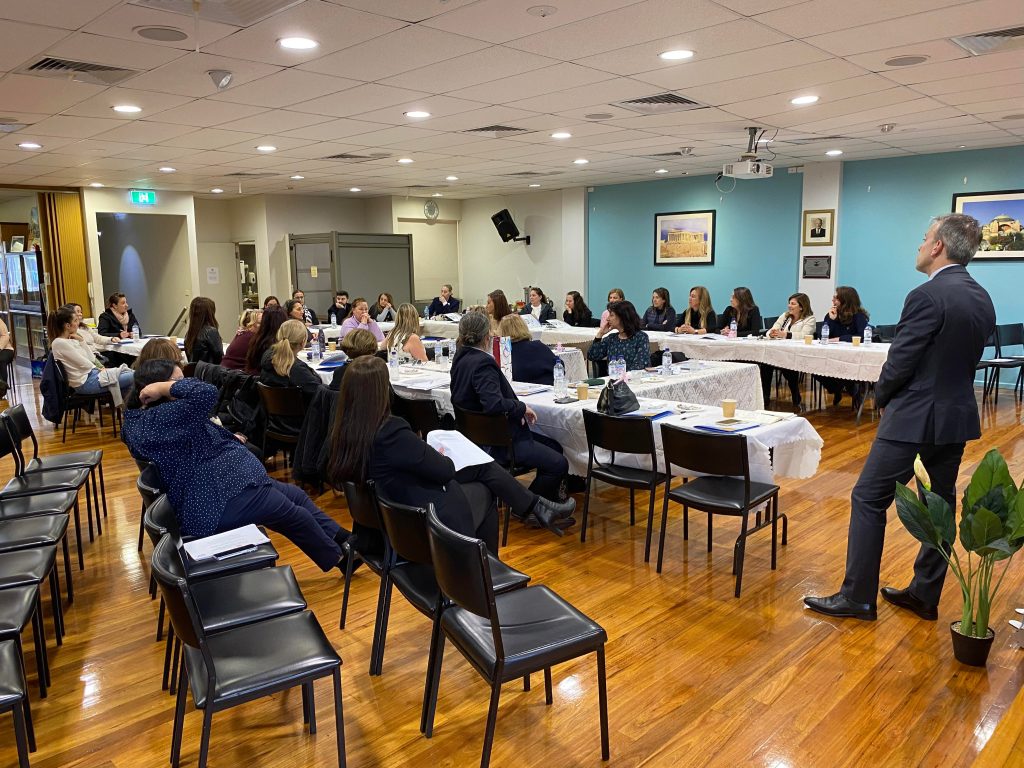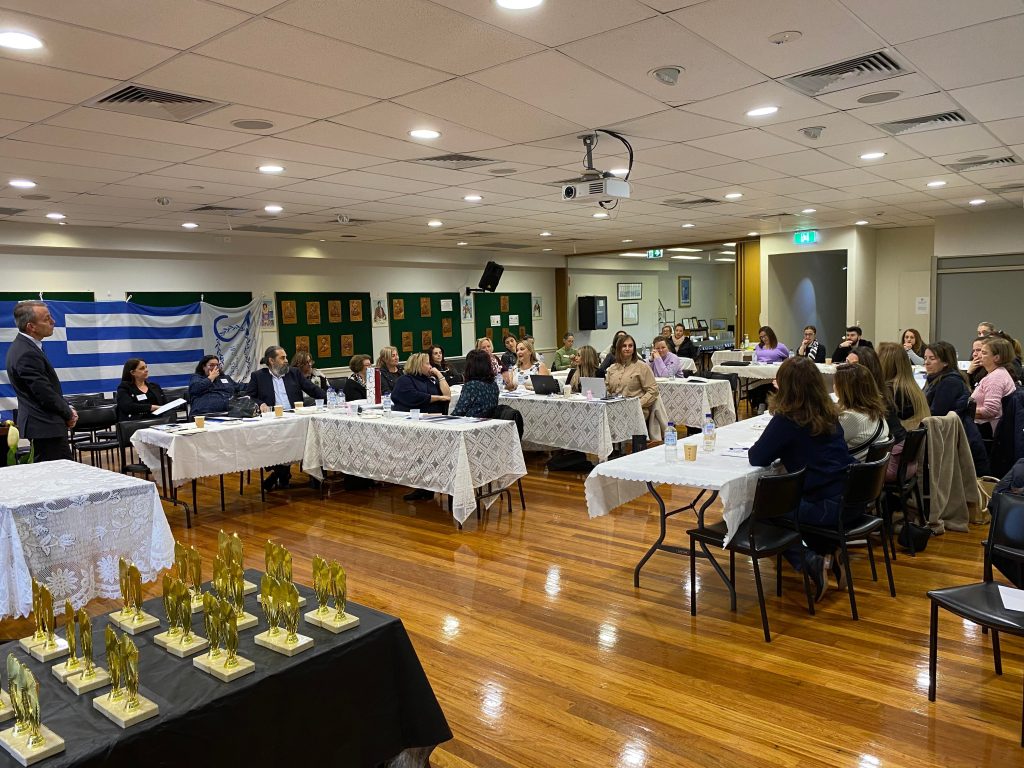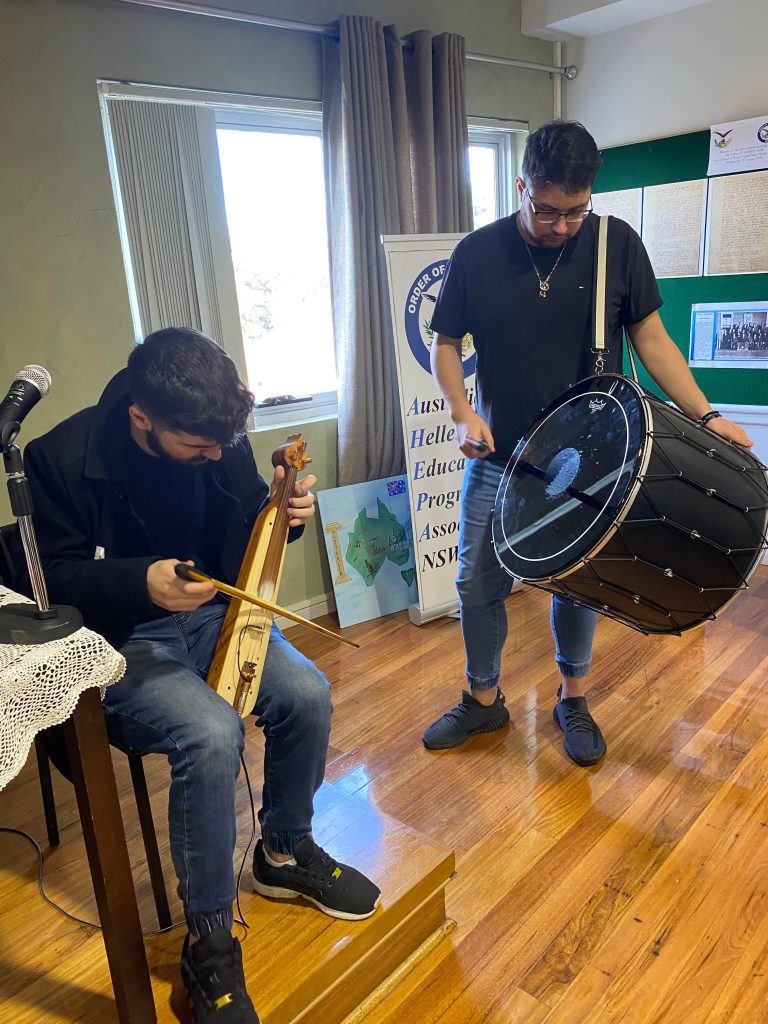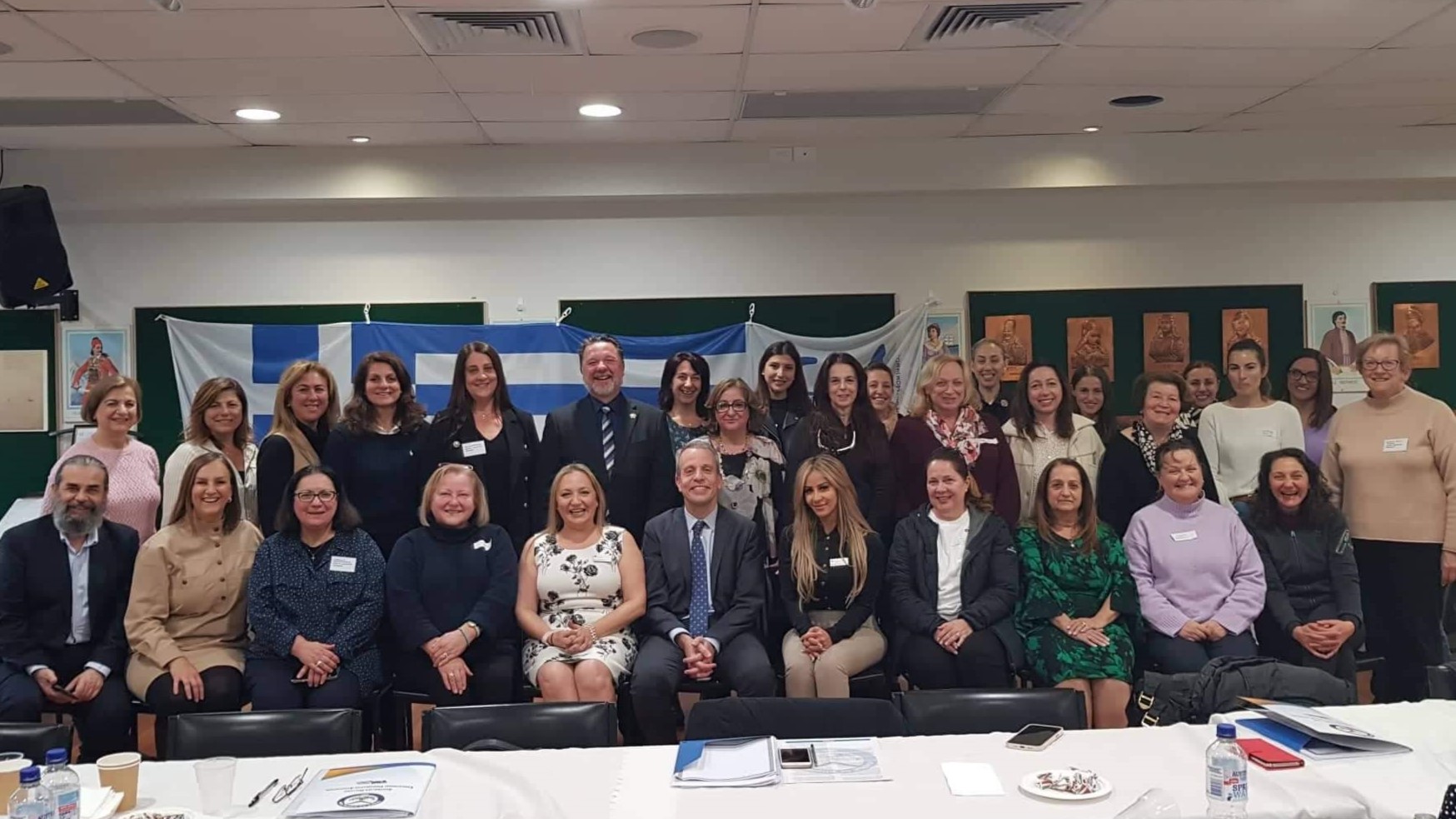The largest gathering of Australian Hellene educators in many years was held on Friday, May 26, with the New Ways Modern Greek Conference attended by almost 50 teachers of Modern Greek and other subjects across the primary and secondary sectors.
Organised by the Australian Hellenic Educators’ Association, together with the NSW Department of Education, the conference was a great success, bringing together educators from across Sydney, Wollongong and regional NSW.
The ‘prize’ for dedication went to our colleague from Yanco Agricultural High School, 540 kilometres south-west of the Conference venue.
At a time when Hellenic language education is thriving at the primary level and in crisis at the secondary level, the New Ways Conference provided an opportunity for all stakeholders to gather and discuss the development of all areas of Hellenic education in NSW and the ACT.

The Conference included presentations from educators and the presentation of the Phoevos Awards for excellence in Hellenic Studies at the primary level and the Ayios Kosmas o Aitolos Awards for service to Hellenic education.
Led by the Consul General of Greece in Sydney, Ioannis Mallikourtis, the plenary session opened the floor for discussion around issues related to HSC Modern Greek and the general profile of Hellenic language studies in NSW’s education systems.
Evia Kyriacou, Sophie Poulos, and Marina Azmy from the NSW Department of Education unpacked the new Modern Languages Syllabus for Kindergarten to Year 10, which will be brought in from next year.
Marking National Sorry Day 2023 (May 26), the anniversary of the Bringing Them Home report into the Stolen Generations, Dr Vasilis Adrahtas (Western Sydney University) provoked serious thought and debate with his paper titled: ‘Why does Greek matter in Australia? Lessons from the Revitalisation of Indigenous Languages’.

With a view to the new K-10 Modern Greek Syllabus, set for implementation from 2024, Dr Panayiotis Diamadis presented a paper titled ‘Hellenic language through Australian Hellenic history.’
Students will be looking at a Unit named Legacy: Social Justice, where they will be called on to analyse and reflect on how identity is shaped by language(s), culture(s), practices, values and perspectives.
Drawing on the diverse refugee experiences of Hellenes in the 20th century – particularly during and following the Genocide of 1914-1924 – Dr Diamadis suggested ways to teach Hellenic language within this prescribed unit of work.
The most popular session of the day was Anna Skribias’ ‘Greek language, culture, history – make your own komboloi’, where attendees explored craft as a means of engaging students of Hellenic language at the primary level.
Over lunch, young teachers Kosta Papoulidis and Peter Tsenkas entertained the participants with a live performance of traditional Pontian music, highlighting music and song as a means for engaging students of Hellenic language across all levels.

In their Vote of Thanks, the AHEA and DET organisers thanked AHEPA NSW INC for serving as Major Sponsors of the Conference, providing the facilities for the day free of charge. By common acclaim, the Rockdale venue was ideal for such a meeting of minds.
The AHEA now turns its attention to organising a seminar late in 2023 around the theme of ‘Teaching Hellenic language and culture to rural and regional students of all ages’, followed by the 27th Hellenic Studies Awards in early 2024.

